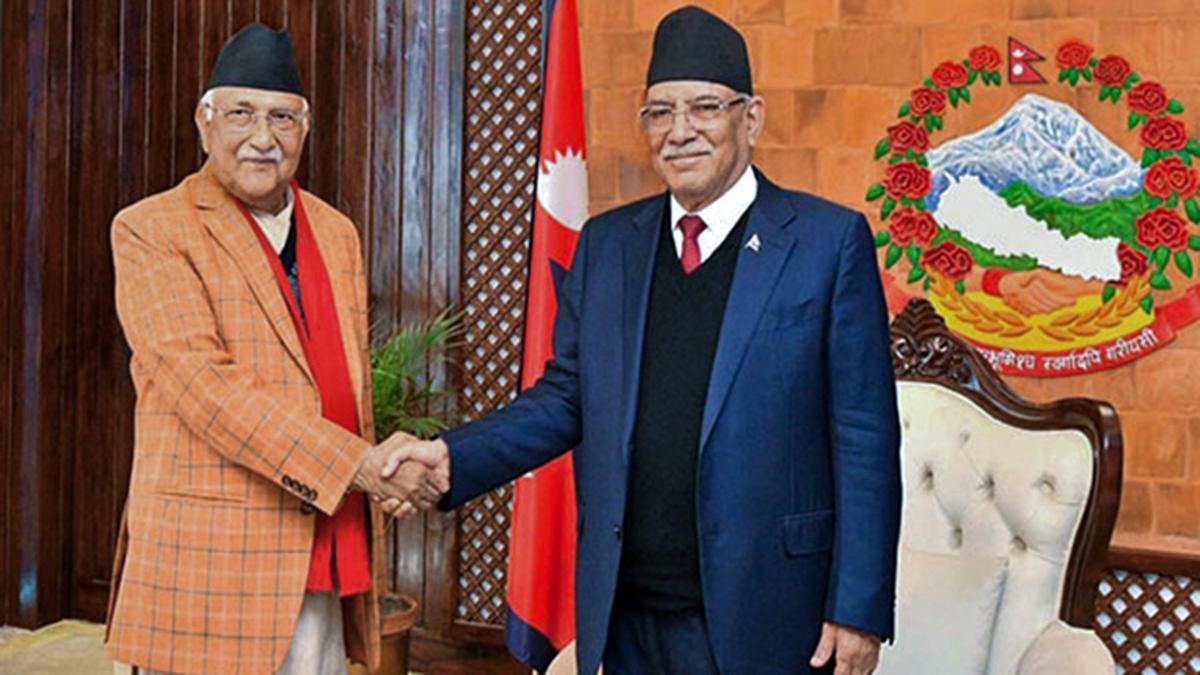
Prachanda forms new Cabinet after leaving Nepali Congress Premium
The Hindu
Prachanda forms new Cabinet with CPN-UML, pushing Congress to opposition, amid renewed bid for Left unity in Nepal.
Two days after breaking the one-year-old alliance with the Nepali Congress, Nepal’s Prime Minister Pushpa Kamal Dahal ‘Prachanda’ on Wednesday formed a new Cabinet by inducting Ministers from the Communist Party of Nepal (Unified Marxist-Leninist), his new main coalition partner, and two other parties.
In a sudden move, Prachanda on Monday broke up with the Congress and joined hands with former Prime Minister K. P. Sharma Oli, Chairman of the CPN-UML, with the promise to give a renewed push to the “Leftist movement” in Nepal.
Prachanda, also the Chairman of the Communist Party of Nepal (Maoist Centre), inducted eight Ministers from the CPN-UML, five Ministers from his own party, four from the Rastriya Swatantra Party and two from CPN (Unified Socialist) on Wednesday.
Prachanda and Mr. Oli had a tough time on Tuesday and Wednesday as they struggled to reach a deal on sharing Ministries, just as a jilted Congress was in action to stall the new communist coalition.
With the formation of the new Cabinet with a new set of Ministers, the left alliance is back at the helm in Kathmandu, pushing Congress, the largest force in parliament, to the Opposition seat.
Lately, Prachanda had been repeatedly saying that his government had not been able to yield the desired results. Party insiders and political commentators said his remarks, however, stemmed from the notion that Congress president Sher Bahadur Deuba was continuously stalling his plan to reshuffle some Ministers.
“The Prime Minister wanted a free hand in the functioning of the government but he was not getting that. So he was looking for an excuse to ditch the Congress,” said Mumaram Khanal, a writer and political commentator. “This is what often happens when a smaller party leads the government.”













